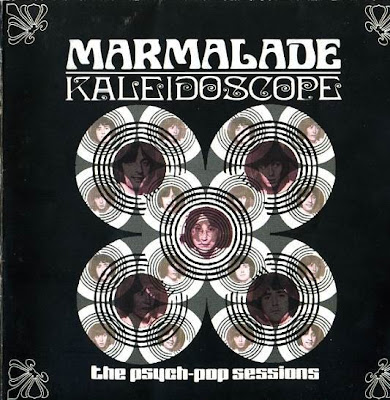
genre: folk
country: uk
quality: lossless (ape, cue, log, scans)
time: 42'19" size: 242 mb
misc.: 2005
Tapestry Of Delights:
Glaswegian Martyn was born in 1948 and brought up by his grandmother and father. In the late sixties he moved down to London and built up a following on the London folk circuit. He signed to Island and in February 1968 his debut album, London Conversation, appeared. It stuck closely to the standard folk formula, but the follow-up, The Tumbler, was more adventurous. It's rumoured to have been recorded in an afternoon and was produced by Al Stewart. Of particular note was Dusty, which captured guest jazz flautist Harold MacNair in fine fettle. Martyn could have just consolidated on these two respected debuts but he was far more enterprising. The turning point came when he met and quickly married singer Beverley Kutner, who issued a couple of singles on Deram. The duo were signed by Warner Brothers, sent to Woodstock to rehearse and then, under Joe Boyd's production, recorded Stormbringer. The album was notable for the introduction of Martyn's pioneering guitar sound and technique on a couple of tracks, Would You Believe Me and The Ocean, whilst another cut, John The Baptist, was issued on a 45, but it made no commercial impact.
The other album he made with his wife, The Road To Ruin, used jazz instrumentation in a rock format. It was also the first to feature Pentangle bassist, Danny Thompson, who was very influential in John's future development. At this point, the arrival of a second child halted Beverley's musical ambitions, so for his fifth album, Bless The Weather, Martyn put together a backing band, including Danny Thompson and former Fairport Convention man Richard Thompson. The title track, in particular, became a long-time favourite with his fans and it featured him for the first time playing acoustic guitar through an echo unit which coupled with his unique vocal style made for a very distinctive sound.
Many regard his next album, Solid Air, as his finest. It developed the amplified guitar technique of the previous album further. He again put together an impressive array of talented individuals to assist him. Indeed, Free's Paul Kossoff played drums and backing guitar on May You Never, a song he'd written for his son. The highlight, though, was the hypnotic title track, written for his friend and tormented soul Nick Drake, who committed suicide within the year.
|

genre: psych pop, beat
country: uk
quality: lossless (ape, cue, log, scans)
time: 1:10'30" size: 440 mb
01. I See The Rain (Single Version) 4:02
02. Kaleidoscope 4:06
03. Mess Around 3:14
04. Man In A Shop 3:18
05. Butterfly 3:47
06. Laughing Man 3:24
07. It's All Leading Up To Saturday Night 2:20
08. Otherwise It's Been A Perfect Day 2:41
09. Station On Third Avenue 3:20
10. Hey Joe 4:01
11. Mr Lion 3:02
12. There Ain't No Use In Hanging On 2:00
13. Chains 2:35
14. Fight Say The Mighty 4:33
15. Mr Tambourine Man 3:15
16. Time Is On My Side 2:41
17. Dear John 2:48
18. And Yours Is A Piece Of Mine 3:01
19. Can You Help Me 8:32
20. I See The Rain (Album Version) 3:48
|

genre: pop, beat
country: uk
quality: lossless (ape tracks, log, scans, size: 427 mb
time: 1:15'46"
misc.: 2007
Tapestry of Delights:
Formed in Scotland in 1963 as Dean Ford and The Gaylords, a soul and Tamla covers band who recorded three singles that deserved to do better. By 1967 they had signed to CBS and chosen a new name, Marmalade, which was more akin with the times. Despite being little more than a mainstream pop outfit at this time they managed to get gigs at 'underground' venues like the Marquee and were a regular attraction at jazz and blues festivals. Various publicity stunts were used to put them in the public eye, including a promotional film and the distribution of jars of marmalade to various radio stations. By now the group had relocated to London and set up communal home in Archway.
Their debut 45, It's All Leading Up To Saturday Night, had a harpsichord introduction and conveyed the imagery of weekend freedom pretty effectively. The flip was a rather lightweight composition of their own. The follow-up, Can't Stop Now, was a pop/soul effort rather overshadowed by another group original on the flip. Their third release was a considerable advance - their first self-penned 'A' side. Notable for its tight harmonies, strong chorus and tuned-down lead guitar line, I See The Rain captured them at their most creative and together with the follow-up, Man In A Shop, which was full of gorgeous harmonies and swirling tapes, captured the feel of that memorable Summer of 1967, though sadly neither were hits here, though I See The Rain did get to No 23 in Holland.
|
|





